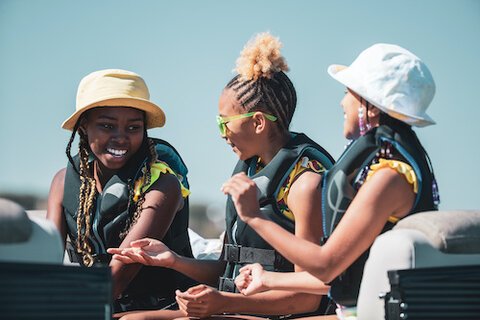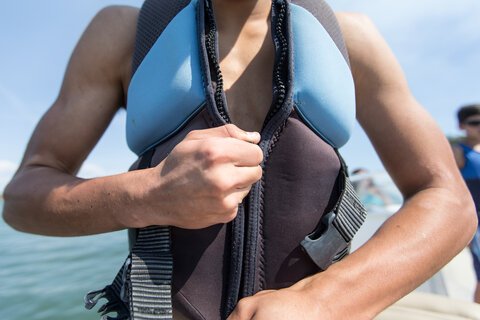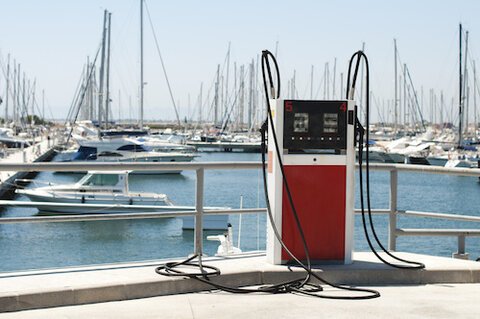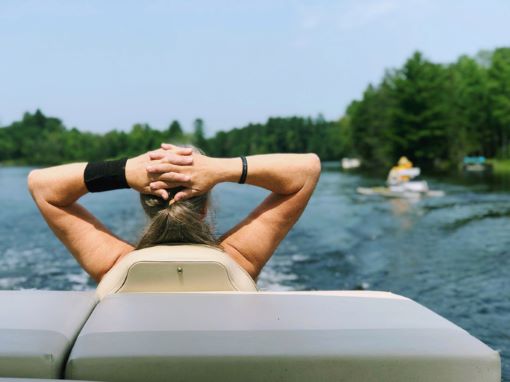Renting a boat is a smart way to get out on the water before buying your own boat. Whether planning a fishing trip, a relaxing cruise, or a family outing, safety should always come first.
Why Boat Rental Safety Is The Top Priority
Prioritizing safety while renting a boat ensures you're ready to handle unexpected challenges and lets you focus on making the most of your time on the water.
Tips for a Safe Boat Rental Experience
Take a Boating Course
Even seasoned boaters can benefit from a refresher course. Enrolling in a boating safety course boosts your confidence and equips you with essential knowledge. Alternatively, many rental companies allow you to hire a captain by the hour or day.
Keep Kids and Pets Secure
Kids and pets love boating, but their safety requires extra attention. Ensure children wear life jackets the entire time and bring pet-specific safety gear, like life jackets with handles for easy lifting.
Learn More About Boating With Pets
Share Your Float Plan
Let someone onshore know where you're headed, who's onboard, and your expected return time. It's a simple way to add a layer of security to your trip.
Pre-Departure Rental Boat Safety Checklist
Once you've picked your rental, it's time for a quick but thorough inspection to be sure everything's in top shape.
Get Familiar with the Controls
Ask the rental staff to walk you through the boat's features, especially if it's your first time operating one. Learn how to use the steering, throttle, and anchor system.
Keep an Eye on the Weather
Check the forecast and avoid heading out if conditions look rough. It's better to reschedule than risk being stuck in bad weather. Have a backup plan in case of sudden weather changes. Familiarize yourself with nearby safe harbors or anchorages where you can seek shelter.
Fuel, Oil, and Other Basics
Ensure the boat has enough fuel for your trip, and ask the rental team what to do if you run low. Inspect the oil and coolant levels. Additionally, run the ventilation blowers for a few minutes before starting the engine. If you smell fumes, address the issue before proceeding.
Confirm that the battery is fully charged, and test essential battery-operated tools such as radios, flashlights, and navigation systems before departure.
Read Next: How to Safely Refuel a Boat
Boat Rental Safety Gear To Have on Board
Life Jackets and PFDs
Every person on board must have a properly fitting, U.S. Coast Guard-approved life jacket. Before departing, show passengers where PFDs are stored. Try them on before you leave the dock, as each person's life jacket must fit correctly. Children and pets should wear life jackets at all times.
Boats longer than 16 feet need a throwable flotation device, too. Confirm your vessel has one and know where and when to use it.
A rental boat should have the life jackets supplied. But it can be good to bring your own, especially for kids and pets, in addition to the spare clothes, towels, sunscreen, and other boating essentials.
First Aid Kit
It's crucial to be prepared before heading out on the water. Double-check that the boat has a well-stocked marine first aid kit, or bring your own to be sure. Add seasickness remedies to the kit, especially for passengers sensitive to motion.
Fire Extinguishers
Check that there's at least one Coast Guard-approved fire extinguisher on the boat, and ask where it's stored and how to use it. Check that it's securely mounted and has been recently inspected.
Communication Tools
Even if you plan to stay close to shore, bring a waterproof VHF radio or a fully charged phone. It's your lifeline in case of an emergency. Have a backup power bank for your phone and other communication devices.
Sound-Signaling Devices
Confirm that the boat is equipped with at least two sound signaling devices: an air horn, whistle, or bell will work.
Lights and Distress Signals
Check that navigation lights are functional. Know the location of flares and teach passengers how to use them. Keep them dry and accessible.
Anchoring and Docking
Check that your anchor has an attached line, along with two fenders for docking. Inspect the anchor line and fenders for wear and tear. Keep spare dock lines onboard for extra security.
Why a Checklist Makes a Difference
Having a safety checklist is the best way to avoid surprises. Think of it as your cheat sheet for smooth, safe boating. It keeps you organized, builds trust with your passengers, and sets the tone for a fun, stress-free day on the water.
Boating Laws and Local Regulations
Licenses and Permits
Some states require a boating license even for rentals, so it's worth looking into local regulations before your trip. Have your boat registration, license, and any permits (like fishing licenses) in a waterproof container. Local charts can also help you navigate unfamiliar waters.
Speed Limits and Wake Zones
Pay attention to speed limits and wake zone markers. Not only will this keep you safe, but it'll also prevent fines.
Never Drink And Drive
Whether you're on the road or the water, drinking and operating a vehicle is illegal and always a bad idea. A sober captain ensures everyone has a fun and safe time on the water. Beyond safety, it's the law—drinking while operating a boat can result in hefty fines and even jail time. Choosing a sober captain prioritizes everyone's well-being and keeps the waterways safe.
Returning the Rental Boat Safely
Leave the Boat Better Than You Found It
Clean up any trash and double-check that you've gathered all your belongings. Rinse the boat with fresh water to remove residue if permissible.
Refuel and Report
If the rental agreement requires it, top off the fuel tank before returning. Also, let the rental staff know if you notice any issues with the boat.
Rental Boat Safety
A well-prepared boat rental safety checklist can ensure your experience is safe and enjoyable. Boating is fun, and with proper preparation, you can enjoy it worry-free.




